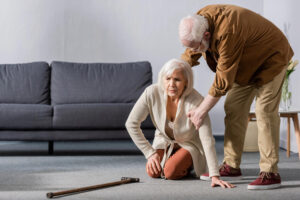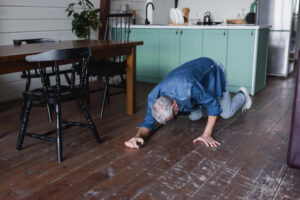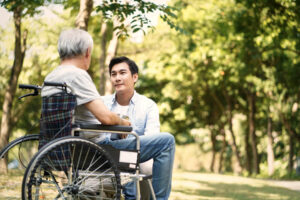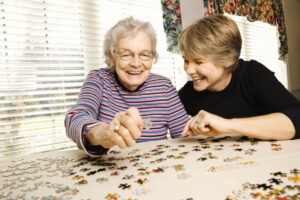“When I is replaced with We, even Illness becomes Wellness.”
– Malcolm X
If you or a loved one has done even the smallest amount of research into senior living communities, you’ve no doubt come across the term holistic wellness. What is holistic wellness, exactly? It’s the idea that to enjoy a full and fulfilling lifestyle, particularly as we grow older, we must nurture our body, mind and spirit. This idea serves as the basis for how countless communities across the country care for their senior residents, and why they strive to provide services that treat each resident as an individual and focusing on all aspects of their specific needs. A vital part of the holistic wellness approach is social wellness.
What is social wellness?
Also referred to as social well-being, our social wellness is determined by our ability to make and maintain meaningful personal connections. Whether it comes from a handful of close friends and neighbors or a more well-established support system, feeling a genuine sense of belonging can make a profound impact and go a long way toward combating social isolation in seniors.
An unfortunate truth of growing older is that the risk of isolation increases as social circles shrink over time due to life changes like health complications or other factors like transportation limitations. A growing feeling of isolation can eventually lead to loneliness, which can have devastating effects on health and overall quality of life. A decrease in past interests and energy can lead to higher rates of depression and even physical ailments. Multiple studies have suggested that loneliness can be directly attributed to an increased risk for developing medical conditions such as congenital heart disease and stroke.
For these reasons and more, it’s vital to ask yourself as you age, “What is social isolation and is it affecting me?” A quick way to complete this important self-assessment is by answering questions like these:
- Do I enjoy spending time with others?
- Do I have a network of close friends and/or family?
- Do I make time to enjoy meaningful connections with those people?
- Are my relationships with others positive and rewarding?
- Do I feel like I make enough time for me?
- Am I taking care of my responsibilities?
- Do I explore diversity by interacting with people of other cultures, backgrounds and beliefs?
If you answered “no” to any of the questions above, it may mean that’s an area where you could improve the state of your social wellness.
Understanding that this is a growing concern among seniors and their families, Elder Care Alliance communities offer a wide variety of social wellness activities designed to encourage socialization and foster relationships among residents and staff. Activities of all sorts, like organized group outings to sporting or entertainment events, or on-campus exercise classes and painting classes, give residents a chance to interact with and appreciate people from all different walks of life.
Living in a community can also provide opportunities to enhance your vocational wellness through volunteerism. This is another beneficial way to improve your own social wellness by giving back to something greater than yourself. Some residents of Elder Care Alliance communities take part in the Mercy Brown Bag Program, which delivers groceries to low-income seniors in Alameda County. Such meaningful work can boost self-esteem and lower depression in seniors, while also nurturing opportunities to socialize and form lasting relationships.
Of course, the responsibility of taking care of your social self shouldn’t all fall on the senior living community you or your loved one call home. Beyond the full calendar of social wellness activities they may already provide, there are myriad ways to improve your own social wellness, including:
- Setting up a regular coffee or lunch meeting with friends.
- Hosting a game night at home for other residents and neighbors.
- Group walks in the park.
- Volunteer opportunities at a school, non-profit or civic group.
- Faith-based activities like choirs or studying religious text.
Whether you’re an introvert or an extrovert, maintaining healthy relationships is a key part of maintaining good health. When home is an Elder Care Alliance community, you can count on great care grounded in our belief of holistic wellness: nurturing the body, mind and spirit.
Learn more about all areas of Elder Care Alliance’s approach to holistic wellness.




















